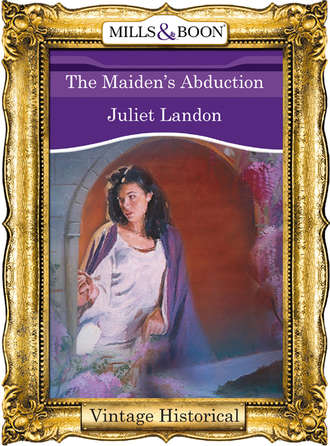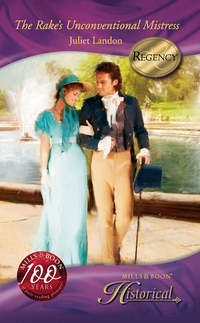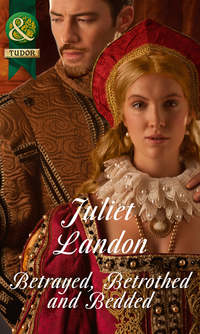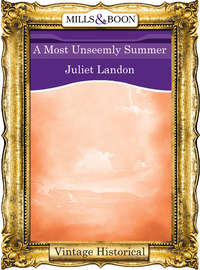
Полная версия
The Maiden's Abduction
‘Thank you, but no. Your wife is clearly not expecting guests, and I would be the last one to impose—’
Young Francis Brakespeare, silent until now, exploded with laughter and nudged the elder La Vallon impudently. ‘Eh, he’s my mother’s cousin, lady, not her husband. He’s never stood still long enough to get himself wed, hasn’t Silas.’
‘I doubt if standing still would make a scrap of difference,’ Isolde bit back at him, striding over to rescue the last of the contents from the cobbles. ‘Your hero has a far greater problem than that, young man.’ She stood to face Silas, her arms draped with old clothes. ‘Now, despite your cousin’s disappointment at not seeing a Medwin, after all, I bid you good evening, sir. I pray she will recover soon enough. Cecily, come!’
‘Mistress…wait!’ A lady’s voice called from the doorway. ‘Please stay.’ From the other side of Bard’s horse, a woman of Isolde’s height stepped through the doorway into the courtyard and so, after all that, it was not the combined mass of the two La Vallon brothers that prevented Isolde’s departure, but the genuine appeal in the woman’s invitation that was the very nature of sincerity. Her hands were held out towards Isolde and her perplexed maid, and instantly their reaction was to go with her and to be led into a candle-lit hall where the air smelled warmly of lavender, beeswax, spices and new-baked bread.
‘Dame Brakespeare?’ Isolde said.
‘Elizabeth,’ the woman replied, smiling. ‘You must be tired after such a long ride.’
Isolde did not pause to think how Dame Elizabeth knew the length of her journey, only that she could not, of course, have been Silas La Vallon’s wife, for she was some years older than he, with two growing sons. Nevertheless, she was darkly attractive, her figure still shapely and supple, her dark eyes lit with a gentle kindness, like her voice. Her gown of soft madder-red linen hung in folds from an enamel link-girdle beneath her breasts and the deep V of her bodice was filled with the whitest embroidered chemise Isolde had ever seen. Her hair, except for dark tendrils upon her neck, was captured inside a huge swathed turban of shot blue-red silk that caught the light as she moved, changing colour, and Isolde was sure it must have been wired or weighted heavily.
‘Dame Brakesp— Elizabeth,’ Isolde corrected herself, ‘may I present Mistress Cecily to you? She’s been with me since I was born.’ As the two women made their courtesies, Isolde took one more opportunity to extricate themselves from the situation. ‘Dame Elizabeth, we cannot impose ourselves upon you like this. You see, I am Sir Gillan Medwin’s daughter, and had I known that Bard’s brother lived here, I would never have agreed to come.’
Silas La Vallon surged into the hall, bringing his brother and cousins with him like a shoal of fish. ‘And Bard would not have come, either, if he’d known I was here. Would you, lad?’ His initial surprise had turned to amusement.
Flushing with the effort of protest, Bard rose to the bait. ‘Probably not, brother. Last time I heard of your whereabouts you were a freeman of York, a merchant, no less. But you can understand why I didn’t spend time looking for you, surely? What do you do here at Scarborough?’
‘I visit my cousins. What does it look like?’
In the light of the hall, Isolde could see more clearly than ever that Silas La Vallon had little in common with his younger brother except excessive good looks. It was, she thought, as if their mother had used up her best efforts on the first-born and from then on could manage only diluted versions. Whereas Bard was tall and willowy, Silas was tall and powerful, wide-shouldered, deep-chested and stronger of face. His chin was squarer than Bard’s, the crinkles around his eyes supplanting his brother’s beguiling air of innocence with an expression of extreme astuteness, which was only one of the reasons why Isolde found it impossible to meet them for more than a glance. Unlike his brother’s stylish level trim, Silas’s hair fell in silken layers around his head where his fingers had no doubt combed it back against its inclination, and somehow Isolde knew that the look other men strived for was here uncontrived, for his whole manner, despite the well-cut clothes, exuded a complete lack of pretension. Bard’s cultivated seduction techniques drew women to him like magnets: his brother’s scorn of any such devices would leave many women baffled. And hence the unmarried state, she thought sourly. She found herself praying that Bard had not mentioned her father’s abduction of their sister: things were bad enough; that would only make them worse.
Dame Elizabeth was more forthcoming about the reason for Silas’s presence at her home, and the glance she sent him was a clear rebuke for teasing his brother with a false picture. She explained to Isolde. ‘Silas was my late husband’s apprentice, you see, and I continue his business as a Scarborough merchant.’ She accepted Isolde’s astonishment with composure. ‘Yes, we’re a select breed, but not unknown. There are several women among the Merchant Adventurers of York, but only myself at Scarborough. Now that Silas is a merchant in his own right, we assist each other as merchants do. He’s been like a second husband in so many ways.’ She felt the sudden jerk of attention at the last phrase and stammered an explanation. ‘I mean, in putting trade my way, and…’
But it was too late. Silas’s arm was about her shoulders, hugging her to his side with a soft laugh. ‘Alas, brother, she’s as fickle as the rest. She’ll not let me near her. Besides, she has these two wolfhounds to keep me at bay.’ He ruffled the hair of the elder one, who dodged away from the affectionate hand and, keeping his eyes on Isolde, smoothed it down again.
‘I shall take over the business eventually,’ John said.
‘Your father would be very proud to know that,’ Isolde replied, gravely.
The courtesy of the gentle Brakespeare family was far removed from that of the Frydes in York, for all the latter’s status and conspicuous wealth and, sensing the two women’s unease and extreme tiredness, Dame Elizabeth insisted that further questions should be left until they had refreshed themselves. ‘I always keep at least one room for guests,’ she said, leading them out of the hall towards a flight of stairs. ‘It’s a large house, but we seem to fill it with ease nowadays.’
‘Your sons are a credit to you, Dame Elizabeth,’ Cecily said, following the lantern across a landing wide enough for several makeshift beds.
The proud mother threw a smile over her shoulder. ‘I was carrying my little Francis when I lost my husband. A pity they never met; they’re so alike. A great comfort. And Silas, of course. He’s something between a father and an older brother to them, but I agree with you, Mistress Isolde, that one La Vallon at a time is more than enough for any woman. I’ll try to keep him out of your way, if I can. Ah, here we are. Thank you, Emmie.’
A genial maid was laying out linen towels on the large canopied bed. She swiped a flat hand across the coverlet, bobbed a curtsy, and stepped through the door which was little more than a hole cut into the panelling. Their shadows closed about them, and dissolved as they met the light from within that revealed a pot-pourri of floral colours spilling over the bed and on to the ankle-deep sheep’s fleece at one side. After their days of mental and physical discomfort at York, the contrast was almost too much for Isolde, and her impulse was to embrace her hostess, who patted her back and assured them that hot water would be brought up and that supper would be ready as soon as they were.
Side by side, Isolde and Cecily sat upon the rug-covered chest at the end of the bed and looked about them at the details of comfort: the tiny jug of marigolds, the embroidered canopy of the bed, the cushioned prie-dieu in the corner and its leatherbound book of hours. Isolde placed a hand upon her cheek, still confused.
Cecily placed a finger to her lips. ‘Keep your voice down,’ she whispered. ‘These walls are like paper.’
Isolde nodded. She had no intention of making the La Vallon brothers party to her thoughts. ‘Did you know that there was an elder brother?’
‘Yes, I knew. He was sent off when you were about six.’
‘Doesn’t appear to think much of his brother.’
Cecily’s greying eyebrows lifted into her close-fitting head-dress. ‘No, and nor do I. He was no more sure of a welcome here than we were, and he had no business putting you in this position. Or any of us,’ she added. ‘And we can’t stay more than one night. We must leave here tomorrow. One La Vallon is bad enough, but two of ‘em is dangerous, and that’s a fact.’
‘I’d have left tonight if I’d had my way.’
‘Tomorrow. First thing.’ Cecily held up the finger again. ‘Now, don’t you go being rude to that Silas. That would embarrass Dame Elizabeth and her sons.’
Isolde’s face tightened as she poked one toe at the basketwork pannier. ‘Monster! Did you notice his short jerkin? Hardly covered his bottom.’
The finger crooked and touched Isolde’s chin. ‘So, you had time to notice his bottom, did you? Come in!’ she called to the door. ‘Wait! I’ll open it for you.’ A maid waited outside to escort them to the hall.
Accordingly, Isolde’s eyes were held well away from glimpses of heavily muscled buttocks to pay increasing attention to the array of food which, after their unsavoury days in York, was a feast worth sharing, even with monsters. The hall had been set with tables and was now busy with servants who arranged white linen cloths, pewter plates, silver knives and tall glass goblets. One man, older than the rest, stood at the huge silver-covered dresser, letting wine chortle merrily out of casks into pewter ewers, while the younger Brakespeare threw soft tapestries over the benches behind the table.
‘We don’t stand on ceremony at suppertime,’ Dame Elizabeth said, coming across to meet them.
Ceremony or not, it was the best meal Isolde had had in weeks, only slightly marred by being seated next to an over-attentive John Brakespeare on one side and an unnecessarily possessive Bard on the other, whose hand seemed unable to find its way from her knee and thigh to the table. Finally, in exasperation, she took his hand forcibly in hers and slammed it heavily upon the table, thrusting a knife between its fingers. By some mischance, this was noticed by the elder La Vallon who, at that moment, had leaned forward from three places down the table to speak to his brother. But although she sensed the exchange of significant looks between them nothing was said, to Isolde’s intense relief.
Under the watchful eyes of the steward, dish after dish was presented to the table, for the family had now swollen to include Dame Elizabeth’s father and the other members of her household. Served by two apprentices and four kitchen servants, this made a household as large as the Frydes’, a surprising revelation which gave Isolde some indication of Dame Elizabeth’s success as a merchant. There was cabbage, onion and leek soup served with strands of crispy bacon, chicken pasties, cold salmon and fresh herrings in an egg sauce, mussels, whelks, cockles and oysters, cheeses, figs and raisins, manchets of finest white flour and crusty girdle breads yellowed with saffron for dipping into spiced sauces. It was the first time Isolde had eaten fresh herring.
‘They come from Iceland,’ John told her. ‘Silas brings them.’
She would have liked to ask where Iceland was, but instead she mopped up the thick almondy sauce and wondered reluctantly which morsels to leave on her plate for the sake of politeness. The wine was of the finest, and her inclination was to watch the pale honey-coloured liquid bounce again into her glass from the servant’s ewer, but something warned her to beware, and she place a hand over the rim, at the same time becoming aware of someone’s eyes upon her, drawing her to meet them. From a corner of her eye, she noticed Dame Elizabeth lean towards her aged father, the servants’ white napkins, the glint of light on glass and silver, but her eyes were held by two steady dark-brown ones beneath steeply angled brows, and for a timeless moment there was nothing in the room except that. No sound, no taste, no touch, no delicious smell of food. Then she remembered to breathe and found it difficult, for her lungs had forgotten how until her glance wavered and fell, her composure with it, and the bold stare she had practised so often upon younger men too far away to recall.
She turned to Bard, but he saw the signs of weariness there and took her hand. ‘Bed, I think. Enough for one day, eh? We’ll sort out what’s to be done tomorrow, shall we?’
‘We must go early,’ she said with some urgency.
‘Go?’
‘Yes. Go back, Bard. Just go. Early.’
He blinked, but kept his voice low to her ear. ‘He’ll probably be going off tomorrow, sweetheart. Let’s wait and see, shall we?’
She sighed, too weary to argue.
The warmth of the summer evening and the clinging heat of Cecily’s ample body next to hers overrode Isolde’s tiredness and forced her out of bed towards the window that chopped the pale moonlit sky into lozenges. Only the wealthiest people could afford to glaze their windows, and even the strips of lead were expensive. The catch was already undone; as she knelt upon the wooden clothes-chest to push it open wider, men’s voices rose and fell on the still night air, below her on the quay. She leaned forward, easing the window out with one finger, recognising Bard’s voice and its deep musical relative.
‘Has it not occurred to you, lad?’ Silas was saying, impatiently.
‘She was with that—’
‘I know who she was with. I have a house and servants in York who keep me informed of what’s happening while I’m away. But have ye no care for Elizabeth and her lads? Have you any right to put her entire household at risk by chasing down here with her? God’s truth, lad, you’re as thoughtless as ever where a bit of skirt’s involved.’
‘That’s not fair, Silas. He’s not all that dangerous, surely?’
‘Have you ever met him?’
‘No. I saw him in the minster, though.’
‘Then you’ll have to take my word for it that Elizabeth had better not be on the receiving end of his attention. Nor must she know exactly who the lass was staying with, or she’ll be worried sick.’
‘Who will?’
‘Elizabeth, you fool. Who d’ye think I mean? It’s her safety I’m concerned about. Your lass has little to lose now, has she?’
‘I wouldn’t say that.’
There was a silence in which Isolde knew they were laughing.
‘You must leave tomorrow, Bard, at first light.’
‘But I’ve told her—’
‘I don’t care what you’ve told her. You leave at dawn and get back to York. I won’t have that maniac chasing down here to reclaim either the girl or his bloody horses, just because your braies are afire.’
‘Silas, it’s not just—’ Bard protested.
‘Ssh…all right, all right. I suppose you can’t help it if you take after Father. If I’d stayed longer I might have been the same, God knows.’
‘But what the hell are we going to do in York, Silas? Can we stay at your house?’
‘I’ll help you out, lad. I’ve thought of a plan. Foolproof. But you’ll have to trust me, both of you.’
‘I do, Silas, but I can’t vouch for Isolde.’
A breeze lifted off the water and sent a dark line of ripples lapping at the harbour wall and Isolde’s skin prickled beneath her hair.
‘Come inside. I’ll tell you about it.’
She waited, then tiptoed back to the bed and sat on its soft feathery edge until her mind began to quieten.
Chapter Two
I solde’s resentment, dormant only during the short bouts of sleep, surfaced again at the first screeching calls of the seagulls that swooped across the harbour, rising faster than the sun itself. From a belief that she was taking control of her life, she now saw that, after only a matter of hours, it was once more in someone else’s hands. The two La Vallons, to be exact. Not a record to be proud of. In her heart, she had already made up her mind that a protracted stay at the Brakespeares’ house was impossible, a decision that Bard’s brother had endorsed in no uncertain terms, but to be packed off so unceremoniously back to York like a common servant—a bit of skirt, he had said—was humiliating to say the least. First a thorn in her father’s side, next a potential trophy for a halfwit, and now an embarrassment.
Well, she would return to York with the remnants of her dignity, but not to stay. There was Allard at Cambridge, for instance, the older brother who had never once failed to mention on his visits home how he wished she’d go and keep house for him. A student of medicine in his final year at the university, he lived in his lodgings where time to care for himself properly had dwindled to nothing. Allard would welcome her and Mistress Cecily, for hers was as kind an older brother as anyone could wish for. Sean, their fifteen-year-old half-brother, was like him in many ways, studious and mentally absent from much of what went on around him, too preoccupied with copying books borrowed from the nearby abbeys to remember what day it was. Isolde did not know whether Sean had been distressed by his mother’s recent death or whether he had merely put a brave face on it for his father’s sake. He was not one to disclose his state of mind, as she did, and she had often wondered whether his books took him away from a world in which he felt at odds. If she regretted leaving anyone, it was Sean. Who would wash his hair for him now? Or his ears and neck, for that matter? Should she return home, after all?
If she had thought to impress them by her dawn appearance, fully dressed and ready to begin her exodus unbidden, the wind was removed from her sails by the sight of a household already astir, well into its daily preparations and not a hint of surprise at her eagerness to be away. The plan outlined to Bard last night by his overbearing brother no doubt concerned what he was to do at York, once they arrived, and was of no real interest to her at that moment. So when he drew her forward into a small and comfortable parlour hung with softly patterned rugs and deep with fresh rushes, she was not best pleased to be joined by Silas La Vallon, especially in the middle of a kiss that was neither expected nor welcome.
A servant followed him with a tray of bread rolls, cheese, ale, a dish of shrimps and a bowl of apples, one of which Silas threw up into the air, caught it without taking his eyes off the hastily separating pair, and noisily bit, enjoying Isolde’s confusion as much as Bard’s almost swaggering satisfaction.
Isolde scowled and took the mug of ale which the servant offered, observing Silas’s ridiculous sleeves that dripped off the points of his elbows as far as his knees. His thigh-length gown was a miracle of pleats and padding that accentuated the width of his great shoulders, and in place of last night’s pointed shoes he wore thigh-length travelling boots of softly wrinkled plum-coloured leather edged with olive-green, like his under-sleeves.
With a mouth full of apple, he invited her to sit and, with another ripping crunch at the unfortunate fruit, sat opposite her and leaned against the patterned rug.
Feeling the discomfort of his unrelenting perusal, she turned her attention to Bard and, with a businesslike coolness, said, ‘What is all this about, Bard? We’ve a fair way to go, remember, and Mistress Cecily has barely recovered from yesterday.’
Bard swung a stool up with one hand and placed it near hers, sitting astride it. ‘Yes, that’s one of the reasons why Silas has agreed to help us out, sweetheart,’ he said, taking one of her hands. ‘We think it would be for the best if Mistress Cecily was given time to recover while I take the horses back to York alone.’
Without taking a moment to consider, Isolde countered, ‘Oh, no. We shall not stay here. I’m resolved to leave immediately.’
Silas intervened, having no qualms about getting straight to the point and being less daunted by Isolde’s fierceness. ‘No, not to stay here, mistress. We all know you can’t do that.’
‘Thank you,’ she murmured, throwing him a murderous glance.
‘I shall take you and your maid to York by ship, I’ve—’
‘That you will not!’
‘I’ve got to go there to unload some cargo, and I’ve—’
‘No!’
‘I’ve told Bard that it’ll take a few days, four at most, depending on the wind, to get up-river past Hull to York. Then I’ll drop you off with your maid and baggage, and you can—’
‘No! I said no.’
Silas slapped the half-eaten apple hard on to the bench at his side and leapt to his feet, his voice biting with exasperation. ‘In God’s name, woman, will you listen to what I have to say before you—?’
Before three words were out, Isolde was up and facing him, eye to eye, Bard’s comforting hand thrown aside. ‘No, in God’s name, I shall do no such thing, sir! I do not need you to make any plans for me, nor do I need your assistance to reach York. I am quite aware that your first concern is for Dame Elizabeth and that you are using Mistress Cecily’s fatigue to pull the wool over my eyes. You care no more about her than you do about me, so don’t take me for a fool, either of you. And if Alderman Fryde should come to Scarborough to search for me it’ll be a miracle worth two of St. William’s, because he doesn’t have the wit to look beyond his own pockets. The first thing he’ll do is send home to see if I’m there.’ Her eyes were wide open and, this time, furiously unflinching.
Fascinated, Silas stuck his thumbs into the girdle that belted his hips. ‘There now, wench, you’ve been wanting to let fly at me ever since you got here, haven’t you? Feeling better now?’
‘You mistake the matter, sir. I haven’t given you a moment’s thought.’ She swung away from him and stalked towards the door, but in two strides he was there before her, his head up, presenting her with the clearest challenge she had ever faced. The look that passed between them, so unlike the enigmatic exchange at suppertime, was of unbridled hostility on her part and total resolution on his, but, having no notion of the form this might take, and not willing to try it out there and then, she appealed to Bard for help.
‘Well? Don’t sit there grinning! Tell him to move.’
Bard went to her, having difficulty with his grin. ‘Nay, he’s bigger than me, sweetheart. Come, you haven’t heard the whole argument yet, and what you say is not correct, you know. We both care greatly for your safety, and that’s why Silas’s plan is a sound one. I can reach York much faster than the three of us, without a chance of you being seen by anyone. Silas can smuggle you ashore at York and I’ll meet you there and then you can make up your mind what to do, whether to stay or go on. And Mistress Cecily won’t have to suffer another day in the saddle.’
‘No, she’d be seasick instead. She’d prefer that, I’m sure.’
‘No, she won’t,’ Silas said. ‘We’re only going down the coast and the sea’s as calm as a millpond. The river doesn’t make anyone seasick.’
‘And what about the horses? You can’t make good speed leading three.’
‘Silas is lending me a lad.’
‘Then what, when you’ve got them to York? You take them back to Fryde’s, do you, and apologise?’
‘Isolde!’ Bard’s tone was gently scolding. ‘Course not. I leave them where his men will find them, tied up outside the Merchant Adventurers’ Hall, most likely. He’ll not know where they’ve been or how they were returned, will he?’
On the face of it, the plan seemed to be reasonable enough, but nagging doubts showed in her eyes and in the uneasy twitch of her brows. These two were La Vallons. Silas must know of Felicia’s abduction by now, for surely Bard had told him, unless he had been informed of it beforehand, as he had been about her own arrival in York. What he had not known, apparently, was that Bard would bring her to Scarborough, and that had unnerved him more than anything else, otherwise he would by this time have made some remark about her father’s wickedness and his own sister’s welfare. Since they had not thought fit to brandish this latest Medwin villainy before her, nor even to hint at her own vulnerability, she could only assume that her association with Bard was protecting her from reprisals. The elder brother was clearly the dominant of the two but, judging from the conversation they’d had last night on the quay, there was no enmity between them. Silas was willing to help his brother since this also relieved his own concerns for his cousin, whatever they were. She could hardly blame him, though the thought kept alive a flame of pique which she could put no name to.








